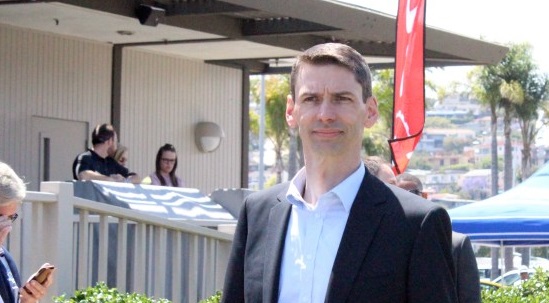When Kristin Armstrong was selected last week over Carmen Small to represent Team USA in the Olympics in Rio this August, a wave of uproar washed over cycling fans and followers.
Small beat Armstrong by 1 minute and 8 seconds in the USA Cycling Time Trial National Championships, and after several strong showings in Europe, some questioned whether the Olympics veteran Armstrong was the right choice.
Small said Wednesday she intends to fight the selection.
USA Cycling CEO Derek Bouchard-Hall responded Tuesday:
“Since last Thursday’s Olympic Team announcement, USA Cycling has heard questions and concerns about some of the selections made. The most vocal views understandably come from the fans of athletes who were not selected.
“It’s wonderful our sport has such passionate and involved fans and I respect our community’s right to voice its views, but I’ve seen misinformation and baseless accusations about bias which deserve comment. In particular, I thought we should provide more information about the decision making process to explain how the decisions were made and on what basis.
“Key points about the Olympic selection process:
- Selection decisions are made by a Selection Committee appointed by USA Cycling comprised of nine former elite athletes from multiple disciplines. Members of the Selection Committee must not be coaching any Olympic eligible athletes and must disclose any potential conflict of interest prior to any selection. Any individual with a potential conflict of interest, be it a USA Cycling coach or a member of the Selection Committee, recuses him or herself from the selection process and does not participate. The Selection Committee does not include any USA Cycling staff.
- The Olympic Team is selected according to the 2016 Olympic Selection Procedures approved by the Selection Committee and the United States Olympic Committee. The selection procedures were published in March 2015. The selection procedures are designed to be objective and are in fact required by the USOC to be objective. To the extent the Selection Committee is required to use discretion, its discretion must be exercised on the basis of objective data. Objective criteria provide our athletes with guidance on what they must do to be selected to a team.
- The selection procedures provide the means for athletes to automatically qualify for the Olympics. They also provide the means for athletes to be selected on a discretionary basis placing an overall emphasis on performance in top-level international competition over domestic competition.
- Among all Olympic selections, only men’s BMX had a “win-and-you’re-in” Olympic Trials. All other selections were made according to various selection procedures. This year’s National Championships were not used as automatic qualifiers for any discipline. The reasoning behind this approach is that consideration of a broad range of results, particularly from high-level international competition, results in the selection of athletes with the highest Olympic medal capability.
- Any athlete who believes they have been wrongly denied the opportunity to participate in the Olympics by USA Cycling may file a complaint with the USOC under Section 9 of the USOC Bylaws. If the complaint cannot be settled to the athlete’s satisfaction, the athlete may file a claim with the AAA to arbitrate the dispute. Aware of this fact, the Selection Committee makes its selections with the knowledge an arbitrator might later carefully review their decisions.
“I believe the key takeaway from the selection process is that a selection committee, not USA Cycling management or coaches, makes selection decisions based on well-defined selection procedures approved by the USOC and published well in advance – and that athletes do have recourse if the selection procedures are not followed.
“Olympic selections are incredibly difficult, particularly for events where there are more athletes capable of winning medals than spots on the Olympic Team. But that does not mean the process is necessarily biased, unfair or arbitrary.
“It just means American cycling has more deserving athletes than Olympic spots, and very difficult decisions must be made.”
